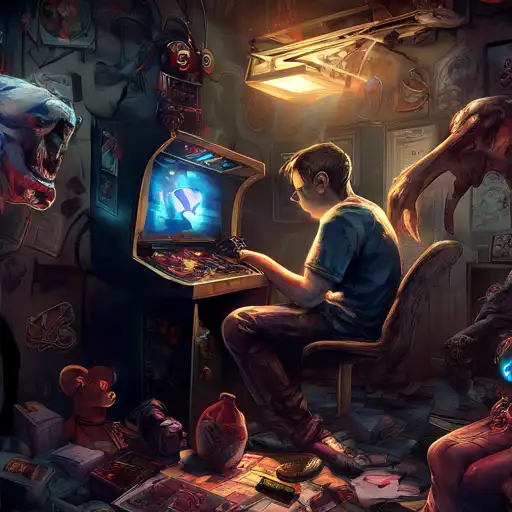Introduction to Gaming Addiction
Gaming addiction has become a significant concern in the digital age, affecting individuals across various age groups. This article delves into the psychological aspects that contribute to gaming addiction, offering insights into why some individuals are more susceptible than others.
The Role of Dopamine in Gaming Addiction
One of the key factors in gaming addiction is the release of dopamine, a neurotransmitter associated with pleasure and reward. Games are designed to trigger dopamine release, creating a cycle of reward that can lead to addictive behaviors.
Understanding the Reward System
The brain's reward system plays a crucial role in addiction. When a person achieves a goal in a game, the brain releases dopamine, reinforcing the behavior and encouraging repetition. This mechanism is similar to that seen in other forms of addiction.
Psychological Vulnerabilities
Not everyone who plays video games becomes addicted. Certain psychological vulnerabilities, such as depression, anxiety, and low self-esteem, can increase the risk of developing an addiction to gaming.
The Escape Theory
For many, gaming serves as an escape from reality. Individuals facing stress, loneliness, or dissatisfaction with their lives may turn to games as a coping mechanism, leading to excessive play and, eventually, addiction.
Social Factors Influencing Gaming Addiction
Social interactions within games can also contribute to addiction. Multiplayer games offer a sense of community and belonging, which can be particularly appealing to those who feel isolated in their offline lives.
The Impact of Online Communities
Online gaming communities provide a platform for social interaction, but they can also reinforce addictive behaviors. The constant availability of games and the social pressure to participate can make it difficult for individuals to disengage.
Preventing and Addressing Gaming Addiction
Understanding the psychological triggers of gaming addiction is the first step toward prevention and treatment. Strategies such as setting time limits, seeking alternative forms of entertainment, and addressing underlying psychological issues can be effective.
Seeking Professional Help
For those struggling with gaming addiction, professional help may be necessary. Therapists can provide strategies to manage addictive behaviors and address the root causes of addiction.
Gaming addiction is a complex issue with deep psychological roots. By understanding the factors that contribute to this condition, individuals and communities can take steps to mitigate its impact and promote healthier gaming habits.
